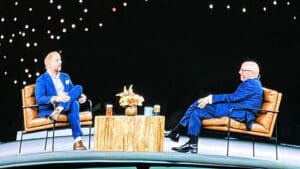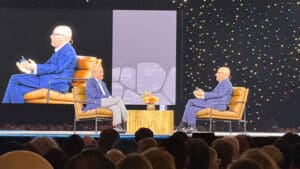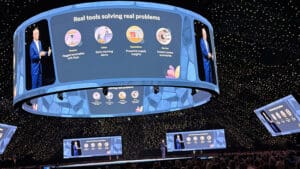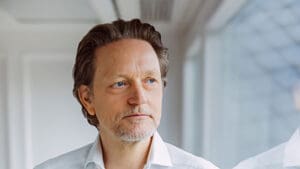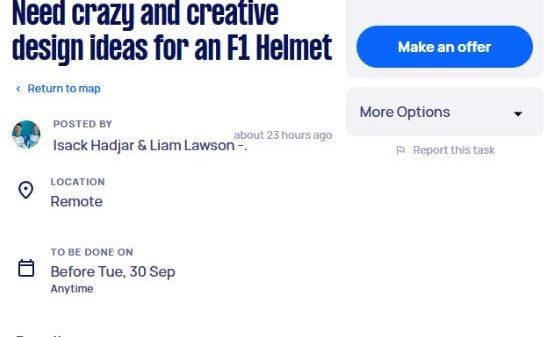Ask Dr. Markus Rechlin what matters most in business and he won’t point to balance sheets or market forecasts. He will tell you about people.
One story he often recalls comes from his time at SLM Solutions, when a young assistant revealed untapped potential and reminded him that real leadership is about recognizing growth before it’s obvious.
Arpad handled everything from scheduling meetings to greeting visitors, even running profitability analyses when needed. “He was everywhere,” Rechlin recalled with a grin. “But I could see he had much more inside him.”
Instead of keeping Arpad in a support role, Rechlin pushed him to think bigger.
“I encouraged him to pursue an MBA at Columbia,” he said. “Supporting his journey not only changed his career but also reinforced a culture of development at SLM Solutions. That focus on people leadership created loyalty and motivation, which directly contributed to our successful trajectory and eventual listing on the TecDAX.”
For Rechlin, the story is more than a fond memory. It captures the essence of his leadership philosophy. Growth, he believes, happens when strategy meets humanity.
Roots In Engineering, Eyes On Leadership
Dr. Markus Rechlin’s career path to executive leadership began far from the trading floors and investor conferences where he later worked. Born in Berlin and raised in Trier and Kiel, he was fascinated by how things worked. That curiosity led him to RWTH Aachen University, one of Germany’s premier engineering schools, where he earned his doctorate in mechanical engineering.
He laughs now when he recalls those years buried in equations and research.
“I was so focused on solving technical problems that I did not realize leadership would become the bigger challenge later on,” he said.
His early professional years were spent at Drägerwerk in Lübeck, a company specializing in medical and safety technology. There, he managed business areas that combined innovation with high-stakes responsibility. “That was my first real lesson in how technology only matters if people can trust it,” he said.
Dr. Rechlin move into consulting at the Boston Consulting Group in Hamburg and later into private equity at Bain Capital pushed him to think differently. “At BCG, you are trained to find the cleanest strategy, the clearest answer,” he said. “At Bain, I saw that those answers did not work unless the people were aligned. Numbers alone do not move organizations. People do.”
Today, he is an investor, visionary, leadership coach, former CEO, and advocate for conscious business practices.
Scaling Slm Solutions
By 2013, Rechlin had moved into one of the most pivotal roles of his career. First as chairman of the supervisory board and later as CEO of SLM Solutions Group AG, he found himself leading a company at the forefront of additive manufacturing.
The challenge was daunting. The industry was young, investors were skeptical, and competition was fierce. Yet under his leadership, the company expanded quickly, went public and exceeded expectations.
He credits that success not to technical innovation alone but to culture. “The most effective strategy has been a holistic approach. Balancing hard factors like structures and processes with soft factors like leadership mindset and culture,” he said. “At SLM, that balance enabled us to scale rapidly and take the company public.”
He tells stories from those days with a mix of pride and humility. Engineers worried about deadlines. Investors pushed for faster returns. His job, as he saw it, was to hold both sides together. “I would sit with the engineers and really listen to their concerns,” he said. “Then I would meet with the investors and explain not just the numbers but the people behind them. When both sides felt heard, we found solutions that worked.”
The approach worked because it was authentic.
“In moments of pressure, people need clarity more than anything else,” Rechlin said. “That clarity comes when leaders are transparent and when trust is real.”
Decision-Making In The Pressure Cooker
Rechlin admits he has faced his share of high-stakes decisions. At Bain Capital, he was responsible for portfolio companies worth hundreds of millions. At SLM, he was steering a company into the uncharted waters of a public listing.
His method for decision-making is simple, though not always easy. “My guiding principles are self-reflection, responsibility and clarity,” he said. “I slow down just enough to understand the perspectives of the people involved. Then I align strategy with culture. And I make sure to be transparent, even when the news is tough.”
That clarity, he said, does not come automatically. It is something he cultivates through daily habits. Meditation, breathwork and quiet reflection give him the mental clarity to lead. “If I am clear internally, I can bring clarity to the organization,” he said. “That is how you keep calm when everything around you feels urgent.”
Trust As The Currency Of Leadership
Ask Rechlin what really sustains performance, and he will not talk first about strategy or KPIs. He will talk about trust.
He traces the lesson back to his time at Bain Capital, when mentor Steve Barnes gave him unusual freedom to operate independently. “That experience deeply shaped my approach,” Rechlin said. “I have seen the difference between leaders who empower versus those who control. Trust and openness are the foundation.”
That conviction has guided him ever since. At SLM, it meant encouraging a culture where employees felt safe to speak up. At MAREVEST, where he now manages investments and coaches leaders, it means building relationships that go beyond the numbers.
“The first step is always seeking to understand the other person’s perspective,” he said. “Even in conflict, trust can be deepened when handled transparently and respectfully.”
He recalls one particularly tense period at SLM, when engineers clashed with investors over product timelines. “Instead of choosing sides, I brought everyone into one room,” he said. “We talked openly. Once people felt heard, solutions emerged more naturally. That moment created stronger relationships, not weaker ones.”
Building Marevest And Looking Ahead
Since 2017, Rechlin has been managing director of MAREVEST Beteiligungs GmbH in Hamburg, a role that combines investing with mentoring. He describes it as the culmination of everything he has learned.
“At MAREVEST, I use structured frameworks developed over years in consulting and private equity,” he said. “But I also ensure there is space for adaptation. Regular reviews, both financial and interpersonal, help align efforts. The combination of measurable targets with a culture of accountability allows us to maintain focus while staying flexible.”
He sees his role less as a distant investor and more as a partner. “I ask two questions,” he said. “‘Where can I create the most impact? And where can others grow by taking responsibility?’ That is how I decide what to handle myself and what to delegate.”
For him, motivation comes not from pressure but from purpose. “I emphasize clarity of vision and ensure that people see how their contributions drive long-term success,” he said. “When people feel trusted and empowered, they naturally deliver outstanding results while keeping the broader goals in sight.”
Markus Rechlin Sees Himself As A Lifelong Student
Despite decades of leadership, Rechlin does not claim to have all the answers. He describes himself first as a student. His evenings often end with leadership books or reports from consultancies like McKinsey. He studies neuroscience and psychology, convinced that leaders must understand not only markets but also minds.
“I focus on continuous learning in both hard and soft domains,” he said. “These routines ensure that I not only stay informed but also stay aligned with my core purpose.”
It is this curiosity, paired with his willingness to reflect, that has allowed him to adapt. Authenticity, trust, empowerment and adaptability are the qualities he returns to again and again.
“Markets evolve constantly,” he said. “The most essential qualities for leaders are authenticity, trust, empowerment and adaptability. They are what I try to embody every day.”
Leadership, he said, is ultimately about connecting people to purpose.
“Motivation comes from connecting daily work with a bigger purpose,” he said. “When people feel trusted and empowered, they naturally deliver outstanding results while keeping the broader goals in sight.”

